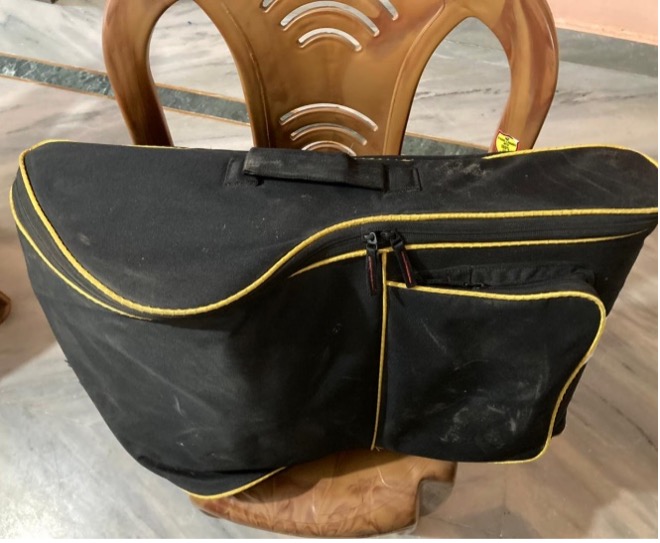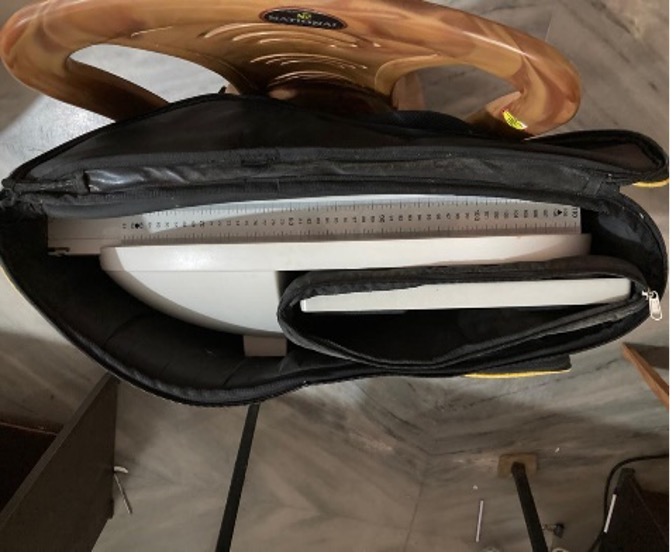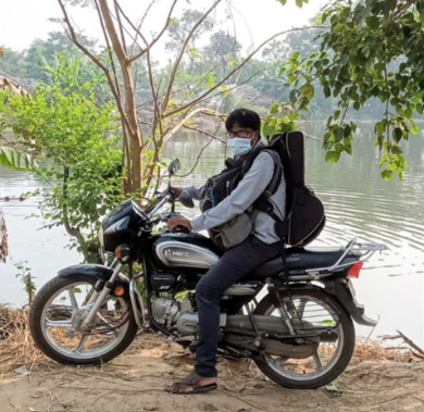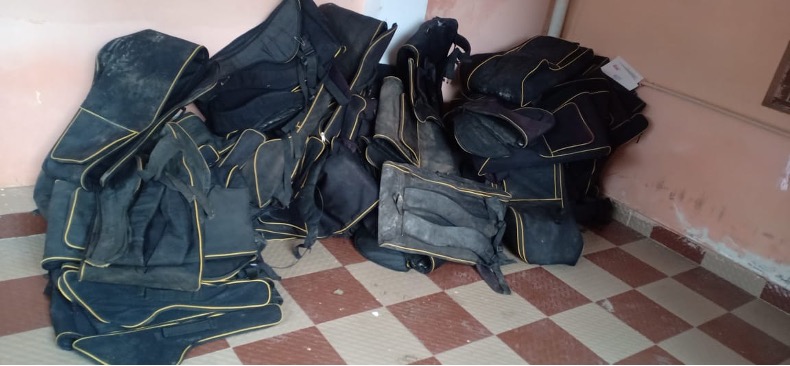Field-workers are the anchors of any large-scale field-based research, especially when there are house-to-house visits for anthropometry, symptom-screening for diseases, and counselling. Their contribution to these studies cannot be more emphasized. Researchers look at data they bring, try, and make sense of the lives and diseases of the research participants, report, publish, present in conferences, so that there is an impact on policy and practices in global health.
But seldom do we write about the men and women who make this happen on the ground, yet seldom get accolades, and move on to newer projects for their livelihoods.
This blog is a small tribute to our exemplary field-workers through their bags. These are the people who worked very hard in the RATIONS (Reducing Activation of Tuberculosis by Improvement Of Nutritional Status) trial (Aug 2019 – Aug 2022) that was conducted in an eastern state of Jharkhand and overlapped with the tough COVID-19 pandemic years. I describe here not the results, but a story of the bags that our 56 field-workers used for various data collection activities. When as researchers/investigators, we plan field activities, we seldom understand or know the difficulties in which our field-workers live, work, and provide us the output/data. This story is an attempt to reflect on some of these aspects; connect dots between the field-workers, and the field-work they do which feeds into the final research output of us investigators, through the story of their bags.
During the planning phase of the trial at Yenepoya Medical College, we got these bags designed and made in Mangalore (Karnataka) from a local bag-maker. He inspected the weighing machine and the portable stadiometer; we informed him how expensive the equipment was, and that it will be carried on bikes/public transport, and at times in difficult terrain. Jharkhand is a state with a huge forest cover and difficult to reach areas. He made one sample bag, but the padding that lined the bag felt too thin and needed reinforcement. In the meantime, we also decided to have data collection using hand-held tablet device, so we needed a pocket for that. Also, the weighing machine is likely to brush against the stadiometer (the carton box that comes with machine will not last). So, he made a zippered-padded bag to house the weighing machine. The tall back-pack was unstable on the back, a strap in the middle that can be secured over the abdomen got added. All this was INR 650 per bag (8 USD)! On receiving these bags at the end of their training in August 2019, we could see the visible excitement, they were very handy and smart indeed.



Fast-forward three years, the RATIONS trial ended in August 2022. All our field-workers handed over the anthropometry bags with their contents (apart from trial related documents). I sorted it all to account for and transport it back the institution. It was like a time travel; I was touching and sifting through 56 * 36 = 2016 person-month time of the RATIONS trial, a trial that filled their lives as field-workers (and ours as investigators). I was peeping into their lives; the worn-out bags and the damages they endured were a window to the conditions in which the men and women in these large-scale studies live, survive and work.
There were bags that were eaten away by rats and moths. From some, the representatives from our longest surviving species crawled out, the roaches. There were bags that were held using ropes/strings as the zips had given way. There was one that stood out; it had hooks neatly and lovingly sewn to replace the zip, the hooks that are used in women’s blouses. Most were completely worn out with use, but a few bags (and the equipment inside) were in better condition, a picture of disparity in the heap of bags and equipment!
I cannot carry these worn out, tattered bags back to Mangalore; can only take the equipment back. But as a team we decided to transport some 10 good bags back to Mangalore! Thus, ironically, the good-looking bags representing a particular class in the society, were now destined to travel places and live much longer, unlike the worn-out bags which accompanied their owners through their difficult lives. Probably, these are the owners who, like their bags, have a shorter life-expectancy and adversely affect the shining public health statistics. But they make our worlds function, come what may.
The story does not end here. After piling up all the discarded bags outside the office, we could see our project consultant and data entry operator visibly unhappy at the prospect of so many bags going to waste. They were closer to the lives of these bags and their owners than me! They arranged for a local non-governmental organization that agreed to take a few for their own field work, despite the bags being worn-out. The remaining ones? They were going to be taken for bringing back forest produce by some of our tribal friends who do not talk of climate change and reduce, reuse, recycle, but do it anyway.

Adieu my field-workers, adieu bags, adieu Jharkhand!
About the author: Madhavi Bhargava, is a Medical Doctor from Yenepoya, India and considers herself a professional mutant. She worked as a clinician/surgeon for 10 years in rural/tribal Chhattisgarh, India and later transitioned to academics and research with a second post-graduation in Community Medicine. She continues to apply her experience and understanding of social determinants of health in whatever she does, including story-telling.
(Photo credits: G Sai Teja and Dr Ajay Meher)
Competing interest: None
Handling Editor: Neha Faruqui